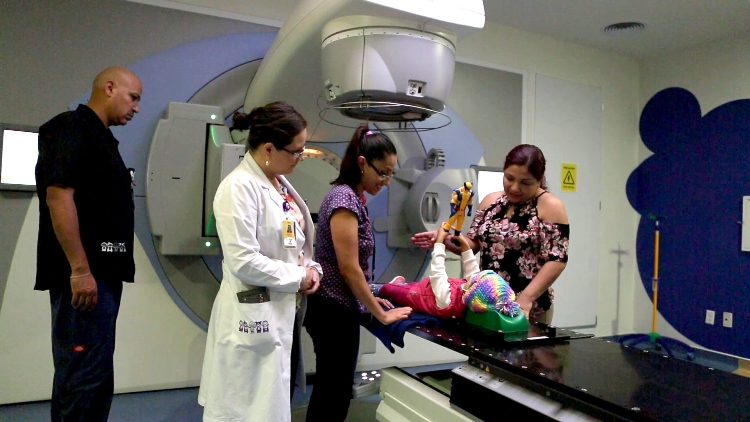Jordan’s King Hussein Cancer Center designated IAEA collaborating centre
The Center also has a practical arrangement with IAEA since 2015 that fostered closer collaboration.

Following long-standing cooperation with the King Hussein Cancer Center (KHCC) in Jordan, the IAEA designated the KHCC an IAEA collaborating centre for radiation oncology, medical physics, nuclear medicine, radiology and nutrition.
KHCC experts have been participating in IAEA projects on enhancing the management of diseases through capacity building under the IAEA curricula for nuclear medicine professionals, offering regional workshops, training events and courses. The Center also has a practical arrangement with IAEA since 2015 that fostered closer collaboration.
Tackling the cancer burden requires systematic, equitable and evidence-based strategies for prevention, early detection, diagnosis, treatment, and palliation, using available resources, which are formulated into a national cancer control plan/programme or a cancer strategy.
Radiation therapy, diagnostic imaging and nuclear medicine are essential to providing high-quality cancer care. However, many low- and medium-income countries (LMICs) are lacking appropriate life-saving cancer diagnostic and treatment services.
‘’In light of our continuing support to over 110 LMICs to address the burden of non-communicable diseases, and the recently launched Rays of Hope initiative on increasing global access to radiation medicine, we turn to reliable partners like you,” said Najat Mokhtar, IAEA Deputy Director General and Head of the Department of Nuclear Sciences and Applications, during the signing ceremony in Vienna on 22 July 2022.
“You have already become a hub for IAEA activities in the Middle East, providing Member States with scientific advice through training courses, fellowships and other means. You will continue to promote the practical use of nuclear techniques worldwide, and help us implement our activities in human health.”
Under the new agreement, KHCC will work with the IAEAE to provide advanced training in radiation oncology, diagnostic imaging, cancer informatics, nutrition and medical physics.
The KHCC will assist the IAEA through:
Providing experts to the IAEA for its activities in radiotherapy, nuclear medicine, medical physics and nutrition,
Supporting the IAEA in the design, implementation and follow-up of coordinated research activities (CRPs),
Contributing to IAEA activities in the development of best practice and evidence-based guidelines in radiotherapy, nuclear medicine, medical physics and human nutritional health,
Supporting the production of e-learning material in radiotherapy, nuclear medicine, medical physics and nutrition for the IAEA’s Human Health Campus,
Participating in relevant consultancy meetings of IAEA collaborating centres to increase synergy,
Supporting the IAEA in updating radiotherapy and nuclear medicine data in databases such as DIRAC, IMAGINE, NUMDAB, and ORION, in addition to quality improvements in radiation medicine.
“In light of our blooming partnership with the IAEA and in line with our strategic vision for building a network of international collaborations and strengthening action-oriented research and capacity building, we are proud to join efforts, once again, with the IAEA,” said Asem Mansour, KHCC Director General.
IAEA Collaborating Centres
To promote the use of nuclear technologies, the IAEA collaborates with designated institutions around the world. Through the Collaborating Centres network, these organizations assist the IAEA by undertaking original research and development and training relating to nuclear science, technologies and their safe and secure applications. There are currently 58 active IAEA Collaborating Centres in 36 countries, working on helping Member States reach the United Nations Sustainable Development Goals.
- READ MORE ON:
- King Hussein Cancer Center
- IAEA
- Jordan










